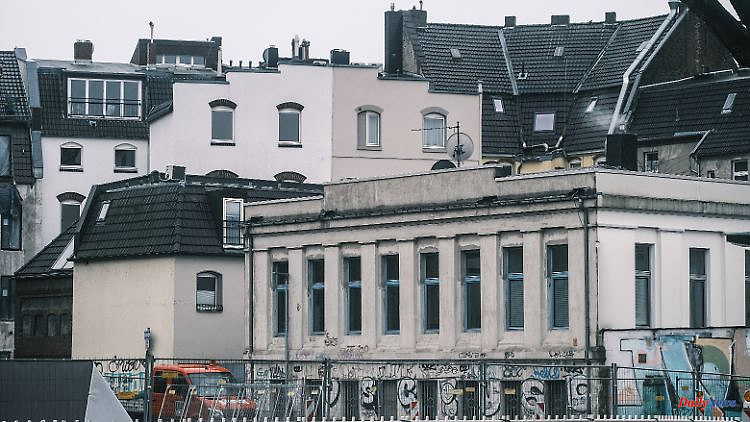Minister of Economics Habeck wants to push back fossil forms of heating against the resistance of the FDP and push the installation of heat pumps. A study comes to the conclusion that physics stands in the way: only half of the houses are suitable for this.
Against the background of the planned end for oil and gas heating, the heat pump is moving into the focus of homeowners. However, only about half of all residential buildings in Germany are suitable for the efficient operation of a heat pump. This is the result of a study by the Research Institute for Thermal Insulation Munich (FIW Munich) and the Institute for Energy and Environmental Research (ifeu), which is available to the newspapers of the Funke media group.
The study commissioned by the Association for Insulation Systems, Plaster and Mortar e.V. (VDPM) calculates that 9.25 million residential buildings are "low-temperature-ready" and suitable for the installation of a heat pump. However, this does not apply to around 10 million residential buildings. A heat pump could be installed in these buildings, but they work much more inefficiently. The efficiency of an air heat pump in an old building with energy efficiency class H is 36 percent below the performance of a heat pump in a building with class A.
The authors of the study calculate that this also has financial consequences. In a modern 160 square meter single-family house in energy efficiency class A with a heat pump, the average energy costs would be around 470 euros per year according to the calculations, with gas heating it would be around 200 euros more. In an uninsulated house of class H, the effect would be reversed: the gas heating would cause energy costs of around 4520 euros per year, the heat pump, on the other hand, around 5900 euros. However, there are currently almost no installed heat pumps in houses in energy classes H.
According to the study, up to five times more heat pumps could be operated with the same network and electricity capacity if buildings were insulated and integrated into the network. This also relieves the grids: Insulated buildings would reduce peak electricity loads in winter by a factor of two to three. "The careless installation of heat pumps in unsuitable buildings not only entails high running costs, but also overloads power generation, the power grids and thus the environment," said FIW institute director and study director Andreas Holm to the Funke newspapers. According to the report, Peter Mellwig, head of ifeu for "Energy efficiency in buildings", said: "The prerequisite for efficiently working heat pumps is low flow temperatures. The worse a building is insulated, the more difficult and uneconomical it is to install a heat pump."
In view of the results, the Association for Insulation Systems, Plaster and Mortar (VDPM) spoke out in favor of a thermal insulation offensive. "There is no 'one' panacea in the building sector. Thermal insulation and heat pumps - these are two sides of the same coin," said VDPM Chairman Christoph Dorn to the Funke newspapers. "It should also be communicated and promoted that way. A heat protection offensive would be the right support for the heat pump offensive."
The Federal Economics and Building Ministries are currently pushing ahead with the regulations for more climate-friendly heating systems planned by the traffic light coalition, but the FDP has now objected to the plans in which it was involved. The joint draft law for an obligation to use at least 65 percent renewable energies in new heating systems has been completed, the Ministry of Economic Affairs, led by Green politician Robert Habeck, announced last week. The draft implements the coalition decision from a year ago, after which the obligation for replacement and new buildings should apply from the beginning of 2024. The new heating standard should therefore be the heat pump, the installation of which is subsidized with more than a third of the investment costs. The FDP accuses Habeck of being fixated on a certain technology and demands a correction of the bill.












